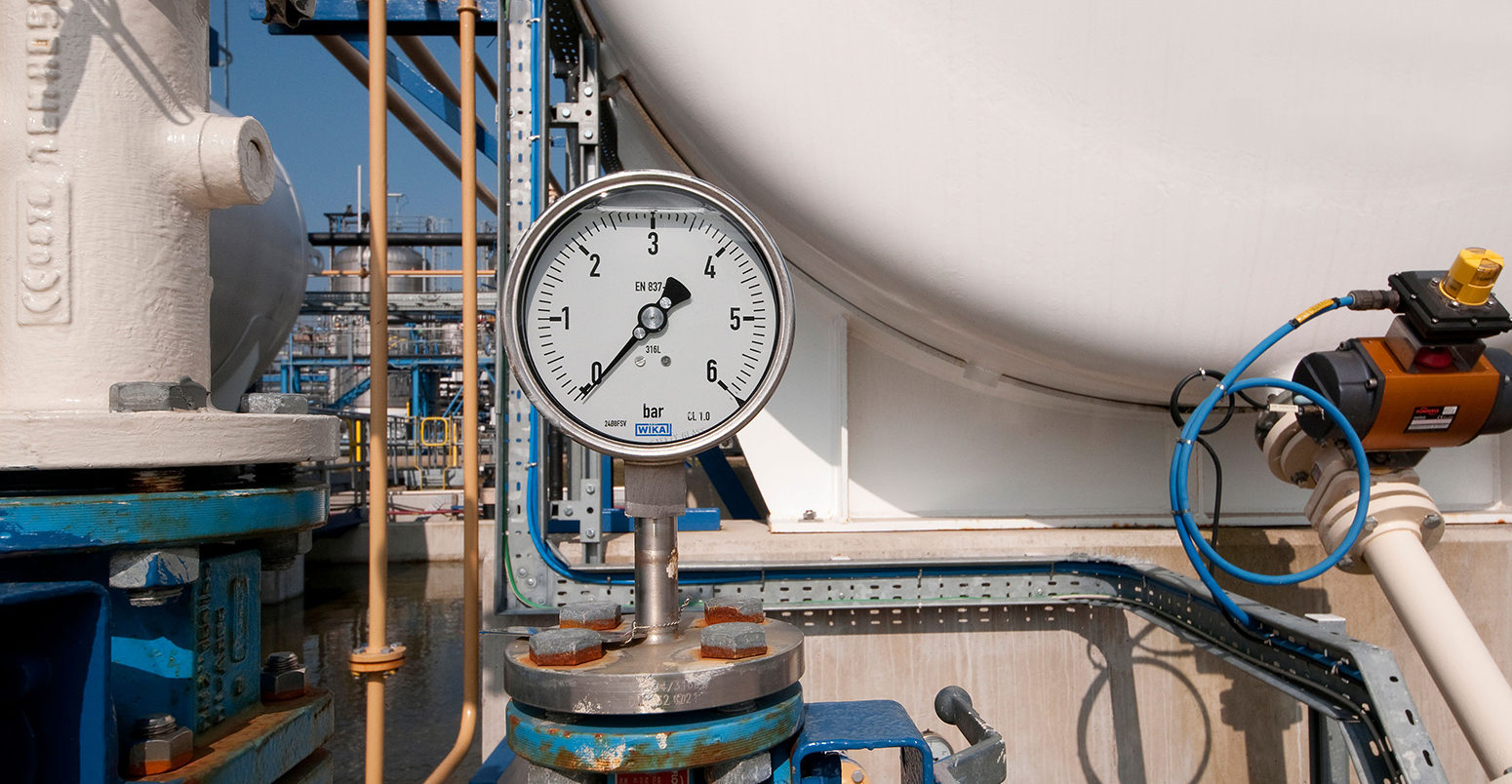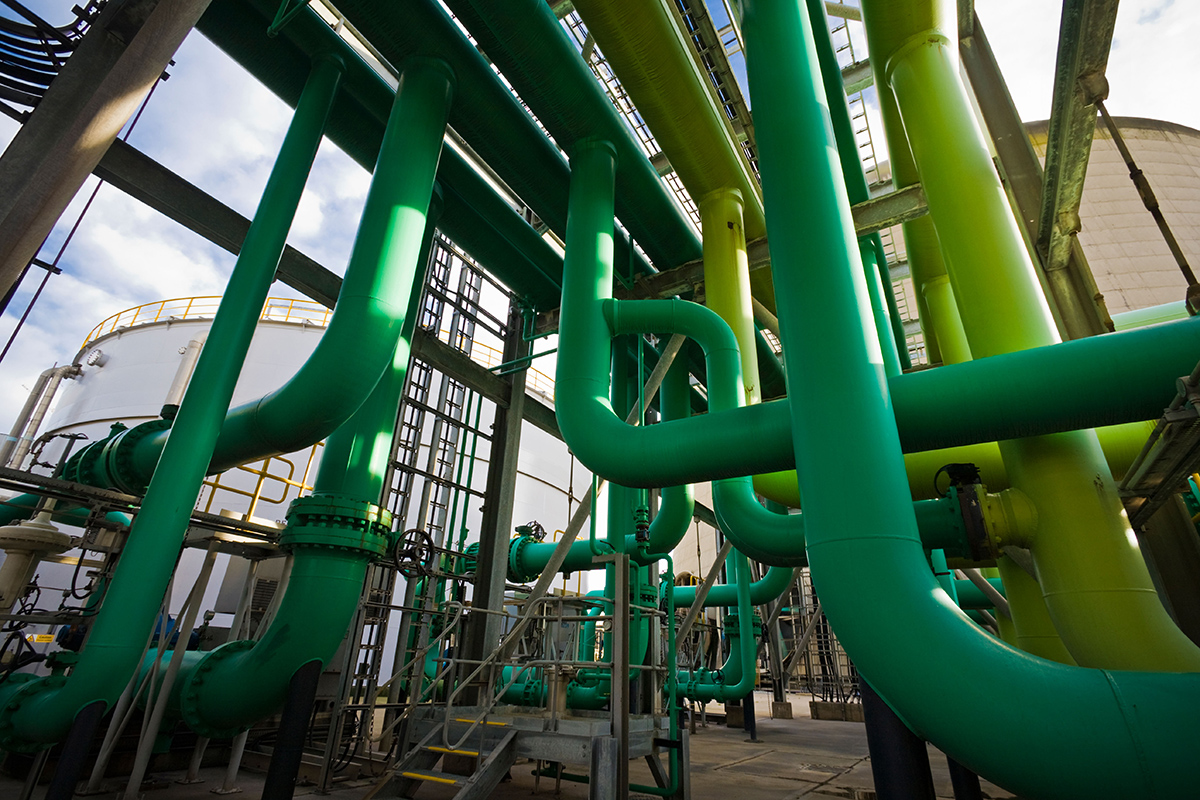
CCC: Progress on low-carbon hydrogen ‘must begin now’ in UK
Jocelyn Timperley
11.22.18Jocelyn Timperley
22.11.2018 | 12:01amHydrogen is a “credible” option for reducing UK’s emissions if used “selectively”, according to the government’s climate advisers.
It could replace natural gas in some otherwise hard-to-decarbonise areas, says a new report from the Committee on Climate Change (CCC). This will be important as the UK must cut emissions from its whole energy system, the committee adds.
The largest potential for hydrogen to cut emissions is as a low-carbon fuel for heat in buildings and industrial processes, the CCC says, and progress towards deployment at scale “must begin now”, if it is to play a role.
However, it is “not prudent” to rely solely on hydrogen to replace gas, it says. This would mean increased gas imports to produce the hydrogen and could mean greenhouse gas emissions remain too high, it says.
The report shows that hydrogen is “not the ‘silver bullet’” it is often claimed to be by the gas industry, a researcher not involved in the report tells Carbon Brief.
Low-carbon hydrogen
Hydrogen has long been touted as a potential option for emissions reductions alongside the roll-out of renewable electricity.
Globally, hydrogen is currently largely used in the petroleum refining industry and the production of ammonia for fertilisers. It is not commercially competitive in most potential applications in the UK energy system. This will remain the case unless costs are driven down using incentives and wider deployment, the CCC says.
In order to use hydrogen to cut emissions, however, it would also have to be made in a low-carbon way.
The two main options for this are converting natural gas or biomass in a plant with carbon capture and storage (CCS), or electrolysis of waterusing low-carbon electricity.
The hydrogen can then be burned or used in a fuel cell, producing no CO2 emissions at source.
While this is generally a less efficient way of getting low-carbon energy than electrification, the big advantage of hydrogen is that it can be stored and transported at a large scale more easily than electricity, the CCC says.
This means hydrogen could be a “cost-effective” replacement for fossil fuels where the alternative is to burn them unabated, or where there are limits to feasible electrification, it adds.
Hydrogen potential
There are several major caveats, however. The CCC concludes that the potential to produce hydrogen from “surplus” low-carbon electricity at times of low power demand is limited in the UK.
This is because producing hydrogen from electricity and then burning it in a boiler is not very efficient, Dr David Joffe, team leader in economy-wide analysis at the CCC, tells Carbon Brief. He adds:
“That has two implications: one is, it’s quite expensive, because you’re taking high-value electricity and losing some of that energy and then burning it in a boiler. It’s not a very efficient solution. Therefore, it will be expensive.
“But the other thing is you would then also need an awful lot of renewable electricity in order to produce that hydrogen, which then creates huge challenges about whether we can build enough by 2050.”
Hydrogen could be imported from elsewhere and an international trade in low-carbon hydrogen may develop over time, the CCC says. However, there is no certainty of this and costs of imports may also be high, it adds.
In contrast, the CCC considers that hydrogen production from gas with CCS has a “potentially important role”. Crucially, however, this would only provide emissions savings of 60-85% relative to gas use in boilers, because of imperfect CO2 capture and upstream methane emissions during gas extraction. As a result, a large-scale rollout of hydrogen from gas could mean the UK falls short on its climate goals.
Simply converting the current gas grid to hydrogen would also double the amount of gas imports in 2050 compared to today, Chris Stark, chief executive of the CCC, tells Carbon Brief.
In addition, Joffe points out that the UK “still has not manage[d] to make progress on [CCS]”. The report recommends the development of two CCS “clusters” in the UK by 2030, with at least one of them producing significant volumes of low-carbon hydrogen.
[The government is set to present its “action plan” for deploying CCS at scale in the 2030s at a summit in Edinburgh later this month].
The CCC’s conclusions about where it is best to source hydrogen are disputed by some and German firms are already building relatively large-scale “power-to-gas” pilot plants.
Mike Childs, head of policy at Friends of the Earth, says it is wrong to suggest that hydrogen produced from renewable power will always be too expensive. He adds:
“The same was originally said about solar power and offshore wind, but, with focus and innovation, prices have tumbled dramatically. Using natural gas to make hydrogen is still polluting and, therefore, doesn’t have a future in a zero-carbon Britain.”
Four key areas
Any rollout of hydrogen should be implemented alongside “low-regret” options, including energy efficiency measures, cheap low-carbon power generation and electrification of transport, the CCC emphasises.
But hydrogen could play an important role in several areas, it says.
Decarbonising heat in buildings is one area where the “challenge in achieving deep emissions reductions by 2050 is greatest”, the CCC says. The biggest infrastructure question regarding hydrogen is whether to repurpose existing gas supply pipelines to carry it.
The CCC’s key recommendations here are for the roll-out of “hybrid heat pump” systems, where hydrogen boilers would provide backup for electric heat pumps to meet peak demands on the coldest winter days.
Hydrogen also has a part to play in reducing industrial heat emissions, the CCC says, especially in situations where the flame needs to come into direct contact with the material being produced, such as in furnaces. In addition, it could help to reduce more distributed sources of industrial CO2 which would be difficult to capture at source, such as in the food-and-drink sector, the CCC adds.
Backup thermal plants for power production could also use hydrogen instead of fossil gas, the CCC says. “This would be helped if new gas plants can be made ‘hydrogen ready’, including being well-sited with respect to potential hydrogen supplies,” it adds.
When it comes to transport, battery electric vehicles are now well placed to deliver “the bulk of decarbonisation” for cars and vans, the CCC says. However, hydrogen fuel cells could be important for reducing emissions from long-distance heavy-duty vehicles, says the CCC. It could also play a role in decarbonising shipping, especially if an international market in low-carbon hydrogen or ammonia develops, adds the CCC.
Near-term heat strategy
The role of hydrogen will depend in large part on how the government decides to deliver decarbonisation of heat, the CCC says.
Heat pumps powered by low-carbon electricity offer the potential to “provide heat efficiently for most of the time”, it says, but displacing gas central heating will be “difficult” given its low cost and familiarity.
Research also shows that the public are currently unaware of any need to move away from gas heating and of what it would mean to move to hydrogen or heat pumps. The CCC adds:
“Making decisions by the mid-2020s to pursue either option as the primary solution for heat decarbonisation carries with it the possibility that the chosen solution will be rejected.”
The new report, therefore, proposes an initial step towards decarbonising heat in homes which avoids commitment in either area: “hybrid heat pumps”. These are electric heat pumps installed in addition to gas boilers in homes as a way to begin reducing natural gas use. Stark tells Carbon Brief:
“They reduce the amount of natural gas that you use in your home by upwards of 80%. And that is remarkable. So we can now recommend the immediate roll out of hybrid heat pumps for the first time, as a really sensible step to first reduce the amount of natural gas that we’re consuming in the home.”
This would mean far less natural gas would need to be decarbonised in the longer term – and allow the decision of whether or not to replace it with hydrogen to be delayed to the 2030s, the CCC says. Joffe adds:
“What it means is that over the period of, let’s say, to 2035, we’re slashing gas use, but we’re creating options about what we do about the rest of the gas…It’s not inevitable that the answer is a hybrid heat pump with a hydrogen boiler backup, but that’s certainly one of the options.
“It also helps if you want a pathway for full electrification…By rolling out the hybrid systems, people will get to know them, get to understand what they can do.”
In the meantime, the UK needs to do “a bunch of things in terms of demonstrating hydrogen in different applications” to increase understanding of its potential, says Joffe:
“We’ve known about hydrogen as a solution for reducing emissions for a long time. And for the last 15 years we’ve had hydrogen buses running on our roads, but really it’s not contributing on anything like the scale that it would need to by 2050 if it’s going to make an important contribution to reducing emissions. So we just need to get on and do something.”
Heat strategy
Earlier this year, the CCC highlighted low-carbon heat as one of the areas in need of additional policy measures to keep decarbonisation on track. The UK’s Paris Agreement commitments further emphasise the need for zero-carbon energy, the CCC adds in the new report.
The UK now needs to commit to developing a “fully-fledged” strategy for decarbonised heat “within the next three years”, it says, including clear signals on the future use of the gas grid.
Earlier this week, the Times reported on an industry plan to switch to hydrogen in a number of UK cities, including Leeds, Newcastle and Manchester. The scheme, led by gas distributors Northern Gas Networks and Cadent, and gas supplier Equinor, would see 3.7m homes and 40,000 businesses converted to hydrogen over seven years from 2028.
Asked whether such a scheme would fit in with the CCC’s recommendations on hydrogen, Stark tells Carbon Brief:
“They are looking at what would you do, if you were required to turn over the gas grid to hydrogen, and that’s why it’s such an important report. We’re looking at the more fundamental question of whether we should do that, pointing to, I think, a more staged approach to all of this.”
Continuing an incremental approach that “relies on isolated, piecemeal demonstration projects” may lead to hydrogen remaining forever an option “for the future”, the CCC says. It adds:
“[A]s an infrastructure issue with long lead-times, it must be addressed with strategic decisions in the 2020s if we are to meet the 2050 target under the Climate Change Act.”
Commenting on the new report, Dr Richard Lowes, a postgraduate researcher in energy policy at the University of Exeter, tells Carbon Brief that the call for a new heat strategy is welcome. However, he adds:
“The three pillars of UK heat decarbonisation haven’t changed since the previous 2013 government heat strategy: reduce demand with energy efficiency delivery; electrify heat with heat pumps; and grow heat networks in dense urban areas.”
The hydrogen report follows two other reports released by the CCC last week, on biomass and land-use. The CCC says all three of these reports will feed into its upcoming advice of the UK’s long-term climate targets, due in spring 2019.



